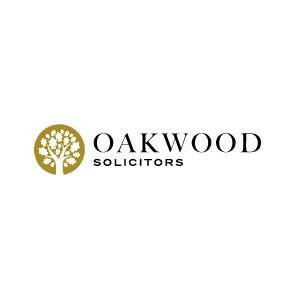Best Landlord & Tenant Lawyers in Leeds
Share your needs with us, get contacted by law firms.
Free. Takes 2 min.
Free Guide to Hiring a Real Estate Lawyer
List of the best lawyers in Leeds, United Kingdom
About Landlord & Tenant Law in Leeds, United Kingdom
The landlord and tenant law in Leeds, like other places in the UK, defines the rights, obligations, and remedies of parties involved in a rental agreement. This involves the legalities surrounding rental payment, disputes between landlords and tenants, eviction processes, maintenance responsibilities, deposit protection, and more. The law covers issues that arise in both commercial and residential rental relationships.
Why You May Need a Lawyer
Several situations might necessitate legal advice in landlord and tenant laws. As a landlord, you may require a lawyer to help draft rental agreements, address tenant behaviours, handle eviction processes, and more. Tenants, on the other hand, may seek legal advice if they face eviction, disputes over deposits, discrimination or if they feel their rights are being violated. Additionally, understanding local laws and regulations and ensuring compliance also often requires professional legal consultation.
Local Laws Overview
Leeds follows the United Kingdom's national landlord and tenant laws, with no additional local suppliments. The key laws governing these relationships include the Landlord and Tenant Act 1985, the Housing Act 1988 and the Tenant Fees Act 2019. These laws cover basic rights of both parties, handling of property repairs, tenancy agreements, protection of tenancy deposits, eviction rules and regulations related to discriminatory behaviours. Landlords are required to provide homes that are safe and fit for habitation, while tenants are obligated to take care of the property and pay agreed rent on time.
Frequently Asked Questions
What is an assured shorthold tenancy (AST)?
An AST is the most common type of tenancy in the UK where private landlords rent properties to tenants. It gives the landlord the right to repossess the property after a minimum of six months, provided proper notice is given.
How can I get my deposit back from my landlord?
At the end of a tenancy, a landlord is expected to return the deposited amount within 10 days after you both agree on the amount. If a dispute arises, tenancy deposit schemes provide free dispute resolution services.
What can I do if my rented house is in poor condition?
If the landlord is not responsive to your request for repairs, you can report the issue to the local council. The council may conduct a health and safety assessment and can force the landlord to carry out necessary repairs.
Can a landlord enter into my rented property without my permission?
Without an emergency, a landlord cannot enter your home without your consent. They must give appropriate notice, usually at least 24 hours, before entering for reasons like inspections or repairs.
What happens if my landlord sells the property?
In the event of a property sale, your tenancy usually continues and your new landlord takes on the existing obligations and responsibilities.
Additional Resources
The Citizens Advice Bureau offers free legal advice on landlord and tenant issues in the UK. The Residential Landlords Association and National Landlords Association provide resources for landlords while the Shelter Charity gives comprehensive advice to tenants. The UK Government website also has extensive information regarding housing and local services.
Next Steps
If you're experiencing complicated situations as a landlord or tenant, or if you believe your rights are being violated, it is recommended to consult a legal professional. You can find legal professionals specialized in landlord and tenant law through the Law Society. Ensure that the professional you choose has full understanding and knowledge of relevant national and local laws. Also, keep a record of all related documentation for future reference.
Lawzana helps you find the best lawyers and law firms in Leeds through a curated and pre-screened list of qualified legal professionals. Our platform offers rankings and detailed profiles of attorneys and law firms, allowing you to compare based on practice areas, including Landlord & Tenant, experience, and client feedback.
Each profile includes a description of the firm's areas of practice, client reviews, team members and partners, year of establishment, spoken languages, office locations, contact information, social media presence, and any published articles or resources. Most firms on our platform speak English and are experienced in both local and international legal matters.
Get a quote from top-rated law firms in Leeds, United Kingdom — quickly, securely, and without unnecessary hassle.
Disclaimer:
The information provided on this page is for general informational purposes only and does not constitute legal advice. While we strive to ensure the accuracy and relevance of the content, legal information may change over time, and interpretations of the law can vary. You should always consult with a qualified legal professional for advice specific to your situation.
We disclaim all liability for actions taken or not taken based on the content of this page. If you believe any information is incorrect or outdated, please contact us, and we will review and update it where appropriate.














